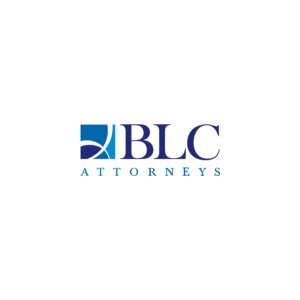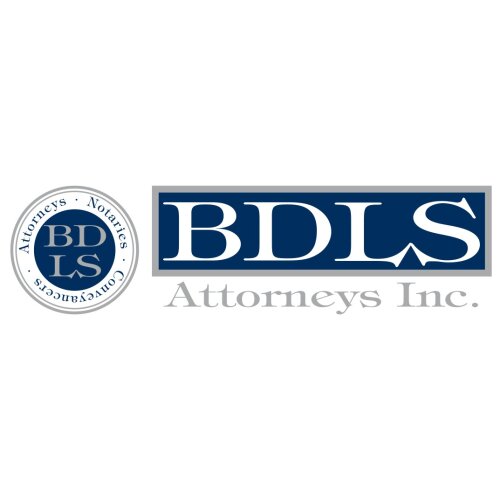Best Elder Law Lawyers in Port Elizabeth
Share your needs with us, get contacted by law firms.
Free. Takes 2 min.
List of the best lawyers in Port Elizabeth, South Africa
South Africa Elder Law Legal Questions answered by Lawyers
Browse our 5 legal questions about Elder Law in South Africa and read the lawyer answers, or ask your own questions for free.
- Brother change my mothers will and i was her caretaker and was the only one that works with the money
- Hi, it's a very long story, but the main thing is that my brother changed my mother's will, and she has alzheimers. She remembered that she signed something, but didn't know what. My brother demands that she go to the bank. He pushed her in a wheelchair and closed her... Read more →
-
Lawyer answer by Recososa Law Firm
Hello: Thank you for sharing this with me. From what you narrated, assuming this involves Philippine Citizens, your situation involves serious legal issues that may fall under Philippine laws if your family and properties are situated here. Based on your...
Read full answer - I looked after my mom and she gave me a portion of her investment money
- As i was my moms primary caregiver, my siblings are now disputing the money she gave me and want to sue me for theft, my mom made me her power of attorney of her bank as i had to look after her. My siblings reside in Namibia and had no... Read more →
-
Lawyer answer by SJ Law Experts
As a property lawyer at SJ Law Experts, G-11 Markaz, Islamabad, when asked about a situation where you looked after your mother and she gave you a portion of her investment money, the appropriate legal response would depend on various...
Read full answer - Will
- My father worked at Germiston for more than 30 years, in one company... My father has a family at Bush Buck Ridge...he met my mum and I was born...He passed on, and I wanna know if he left a Will?... I always visited at month end, in his workplace
-
Lawyer answer by RP Attorneys
Good morning, You provide very limited facts, however: If your father was married to the other woman in community of property, she in any event receives 50% of everything. If your father left a will, she will still get the...
Read full answer
About Elder Law in Port Elizabeth, South Africa
Elder Law, in Port Elizabeth, South Africa, is a specialized field of legal practice that aims to address the specific legal issues faced by the elderly population due to aging. It encompasses a wide range of legal matters including estate planning, wills and trusts, guardianship, retirement, health care, and elder rights. The South African legal scenario includes laws and regulations for safeguarding the rights and interests of the elderly, protection against discrimination, financial security, and provisions for enduring power of attorney.
Why You May Need a Lawyer
Dealing with elderly law issues can be complex, therefore, you might require a lawyer to help you understand and navigate through the legal intricacies. Common situations where you may need a lawyer include drafting of wills and trust deed, establishing a power of attorney, retirement planning, applying for medical benefits, initiating guardianship proceedings, or dealing with issues related to elder abuse and neglect. A lawyer would also be beneficial in cases where the elderly individual is incapable of making rational decisions regarding their personal or financial affairs.
Local Laws Overview
In terms of local laws relevant to Elder Law, it's crucial to note that South Africa's constitution deems discrimination on the basis of age as unjust. Also, the Older Persons Act 13 of 2006 was enacted to maintain and protect the rights of older persons, promote their health, and manage programs and services for their optimal mental and physical well-being. This Act has provision for setting up Residential facilities for older persons. Other important laws include the Maintenance Act and the Health Act, which protect the financial and health interests of the elderly respectively.
Frequently Asked Questions
What legal protections are in place for the elderly in South Africa?
Several pieces of legislation protect the elderly in South Africa, notably the Older Persons Act, the Maintenance Act, the Health Act, along with several provisions as per South Africa's constitution.
How can I ensure that my financial affairs are handled correctly if I become incapable?
You may establish an enduring power of attorney. This would allow a person you trust to handle your financial affairs on your behalf, should you become mentally incapacitated.
What if I suspect elder abuse?
If you suspect any form of elder abuse, consult an Elder Law attorney who can help you report the abuse to the relevant authorities and provide proper advice on how to protect the rights of the abused.
Do I need a lawyer to draft a will?
While it is not legally mandatory, it's advisable to have an experienced elder law attorney assist with will drafting, to ensure all legal requirements are met and your wishes are clearly expressed.
What is the role of the Older Persons Act?
The Older Persons Act aims to provide for the rights of older persons, their health and welfare, and manage services and programs for their mental and physical well-being.
Additional Resources
You may contact the South African Social Security Agency for financial assistance for the elderly. The Department of Social Development is also a valuable resource that oversees the Older Persons Act and provides services to the elderly. Residents of Port Elizabeth may find local non-profit organizations and elder law attorneys to be helpful resources for legal advice.
Next Steps
If you need legal assistance for Elder Law in Port Elizabeth, the initial step would be to identify a skilled Elder Law attorney who can assist you. Prepare a thorough history of your circumstances, including all relevant documentation. A consultation appointment would generally include a comprehensive discussion about your case, options available to you, and a recommended action plan.
Lawzana helps you find the best lawyers and law firms in Port Elizabeth through a curated and pre-screened list of qualified legal professionals. Our platform offers rankings and detailed profiles of attorneys and law firms, allowing you to compare based on practice areas, including Elder Law, experience, and client feedback.
Each profile includes a description of the firm's areas of practice, client reviews, team members and partners, year of establishment, spoken languages, office locations, contact information, social media presence, and any published articles or resources. Most firms on our platform speak English and are experienced in both local and international legal matters.
Get a quote from top-rated law firms in Port Elizabeth, South Africa — quickly, securely, and without unnecessary hassle.
Disclaimer:
The information provided on this page is for general informational purposes only and does not constitute legal advice. While we strive to ensure the accuracy and relevance of the content, legal information may change over time, and interpretations of the law can vary. You should always consult with a qualified legal professional for advice specific to your situation.
We disclaim all liability for actions taken or not taken based on the content of this page. If you believe any information is incorrect or outdated, please contact us, and we will review and update it where appropriate.











